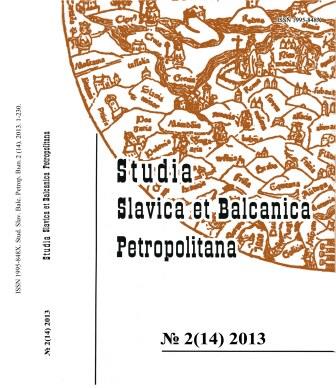Иван Грозный, Кайзер Ливонский? К истории возникновения идеи о российском вассальном государстве в Ливонии
Ivan the Terrible, Emperor for Livonia? Addenda to the History of the Origin of the Idea of the Russian Vassal State in Livonia
Author(s): Anti SelartSubject(s): History
Published by: Издательство Исторического факультета СПбГУ
Keywords: Ivan the Terrible; Teutonic Order; Livonia; Magnus of Holstein; diplomatic relations
Summary/Abstract: The Russian war against Livonia that began in 1558 quickly grew into a conflict in which directly or indirectly participated nearly all rulers of the Baltic Sea region. During the Livonian War, Teutonic Knights decided to get back its secularized possessions Prussia (1525) and Livonia (1561/1562) with the help of the Russian tsar. The negotiations demonstrated that albeit Order actually was not willing and able to fight against the King of Poland and Duke of Prussia, the ambassadors accepted the annual tribute of Livonia to the tsar. Ivan IV promised to release the captive Livonian Order’s Master Wilhelm von Furstenberg and give him an army to conquer the Livonian castles of the Polish king and Gotthard Kettler. A precondition for it was the entry of the Teutonic Order into the war against the king of Poland. The Order was not able to carry it out and actually talks failed. The embassies of the Teutonic Knights in Russia 1563 and 1564 play an important role in the genesis of the idea of the Muscovian vassal state in Livonia. The concept was realized in 1570 when Magnus, the Duke of Holstein was proclaimed the King of Livonia as a «goldovnik» (vassal) of the Russian Tsar. The terms on which Magnus was made the ruler in Livonia were more or less consistent with those the tsar once offered to the Teutonic Order and Furstenberg.
Journal: Петербургские славянские и балканские исследования
- Issue Year: 2013
- Issue No: 2
- Page Range: 180-197
- Page Count: 18
- Language: Russian

